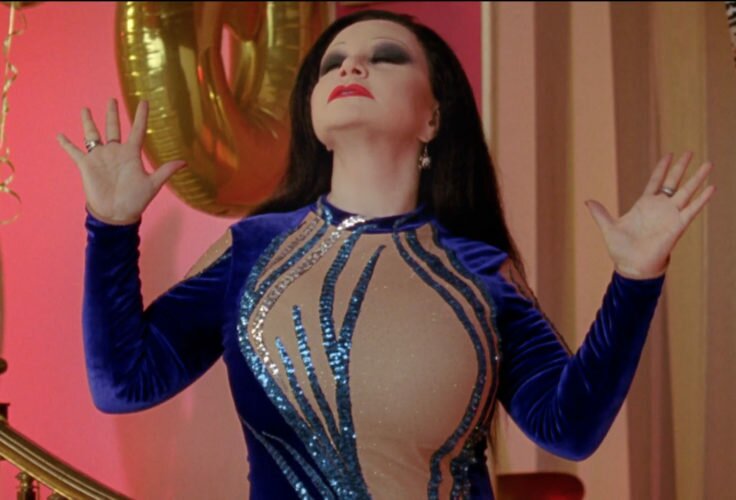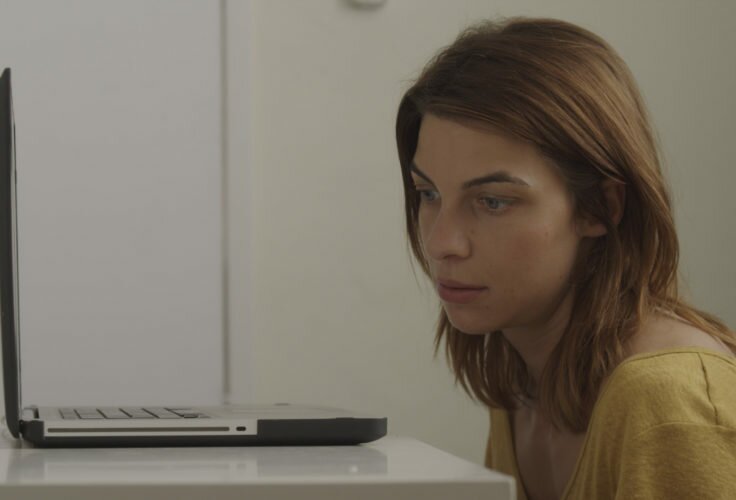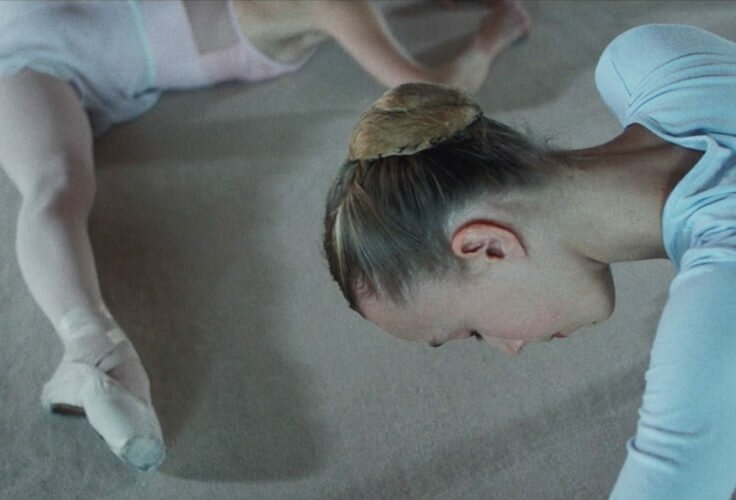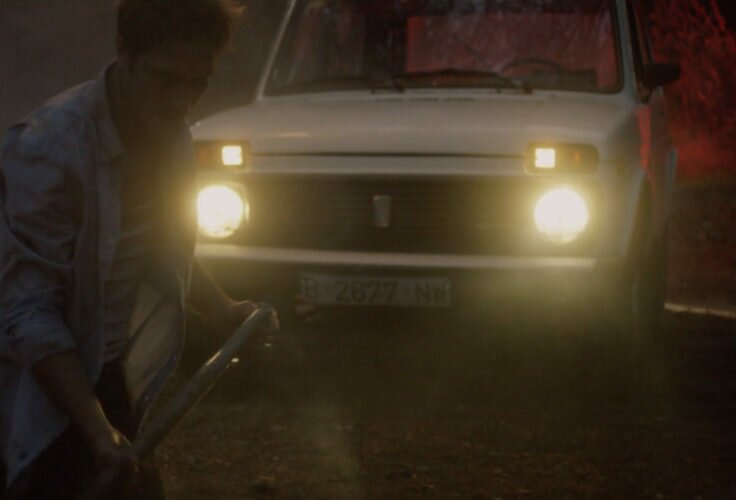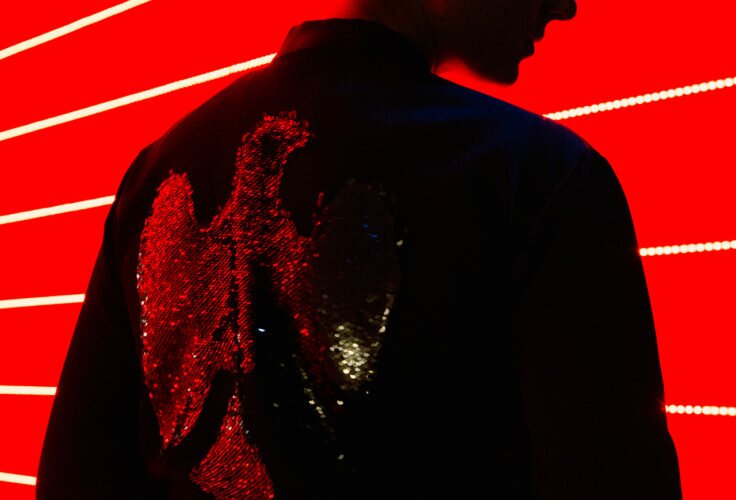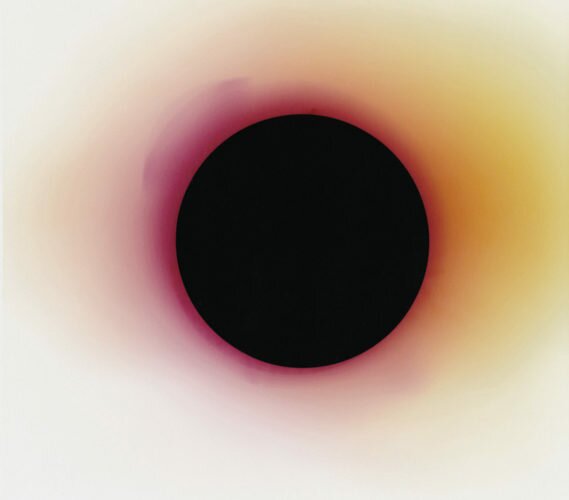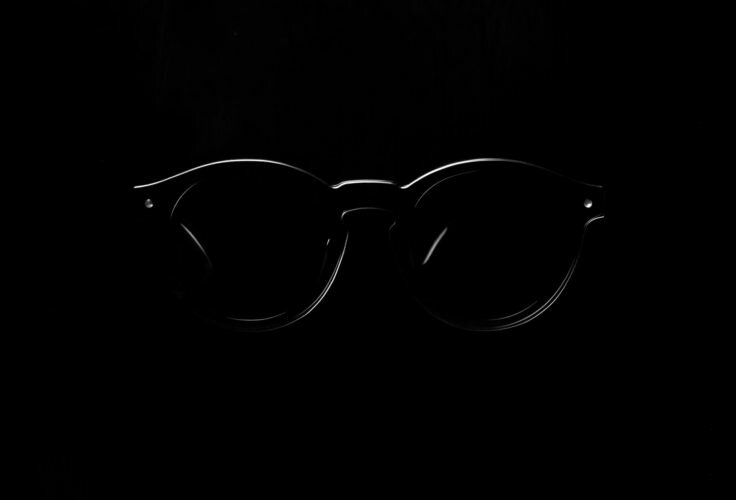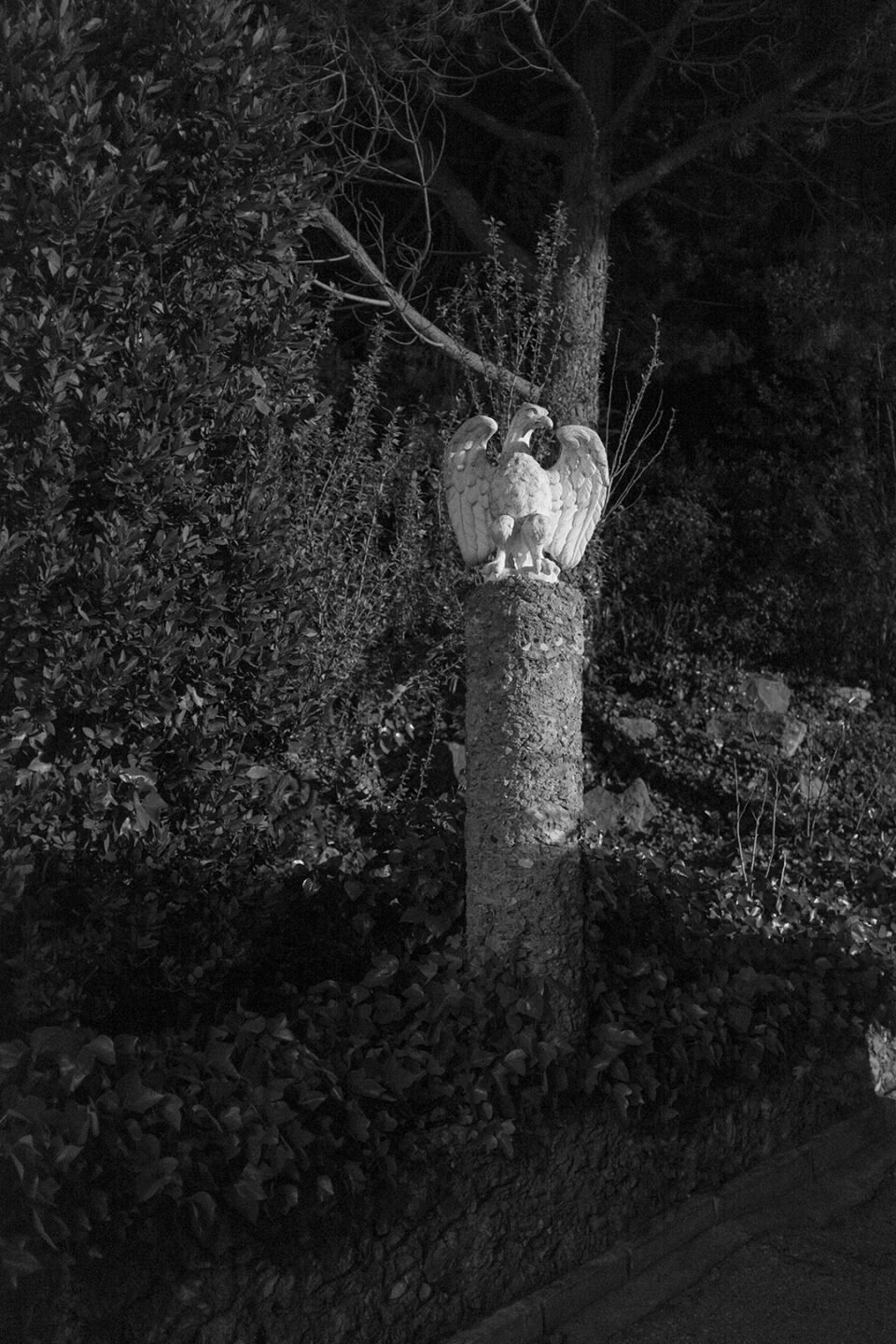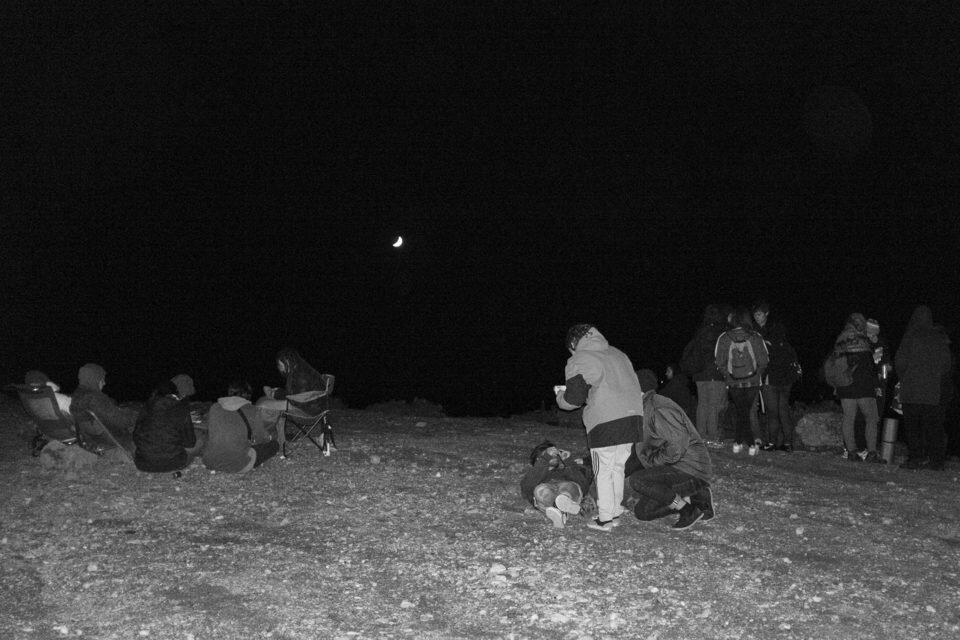We need a holiday. Like the one in this vintage GIF. Joan Pons justifies his current mental dullness through these images.
Looking for Gurb
By Marga Durá
There was a time in which it was good taste boasting about having a siesta to La 2 animal documentaries. Those were pre-hipster times in which there were jobs galore and, thus, the right conditions for debauchery. And this journalist was either away in another world typing away to earn her bread or dozing off to recover from her excesses without any audiovisual aid. But those glorious times are far behind us and at a certain age one starts needing a monotonous delivery to induce her to drooling daytime naps. Luckily, I’ve found an even more effective recipe than zoology to invoke Morpheus during the day: I let myself be lulled by pseudo-historical documentaries with an alien presence. Canal Historia, National Geographic and Discovery Max are totally trustworthy dealers, always eager to offer you a monochord quality product ideal for such things. They pack the same topics in different formats with admirable skill. The great classics of yesterday and today are: Who built the pyramids? It was the aliens. What happened in Easter Island? It was the aliens. Where did the power of the Ark of the Covenant reside? It was the aliens. Where did I leave my keys? It was the aliens. Well, I might have dreamt these last one. But the three first ones are the main courses they re-visit non-stop and, depending on the cook, with the addition of some drops of the Holy Grail, a pinch of time travel or a seasoning of nazi conspiracy, always over a sauce with Babylonian ingredients. The close-up of a cuneiform script table is always the parsley of the genre, a true icon that will be studied in future TV direction schools.
Another hugely narcoleptic variation are programmes devoted to ghosts and any other kind of paranormal phenomena, which, no matter where they might come from, have such a pleasantly repetitive structure as a The A Team episode. A family living in a farm lost in the midst of the US is visited by some hooligan ectoplasms, a team of “scientists” with very weird measuring devices comes into action and kicks the stowaways out, at the same time gathering vitally important data for a hypothetical scientific research.
The drowsiness these programmes make me feel has to do with repetition. But I have no doubt that the vast amount of similar products on offer has to do with the law of supply and demand. These programmes have their viewers, probably much larger than the people who boast about having seen the four seasons of The Wire while they read James Joyce’s Ulysses. Even if we don’t confess it, we’re attracted by experiences that run along a parallel path of what we have learned. There’s something seducing about challenging logical knowledge and wandering around its surrounding paths. “Stories with an esoteric, supernatural or strange component are particularly attractive because they surprise us: they don’t follow the logical course one would expect, but twist it instead. It’s the same ingredient joining surprise and unmet expectations that makes humour work,” explains Fernando Blanco Bregón, Psychology professor at the Universidad de Deusto.
But one thing is playing the tourist on the shore of the occult, and another moving into the backyard of rationality. This is quite a busy place, in fact, according to poll surveys. In a Publiscopio research carried out for newspaper Público, 41% of the Spanish population over thirty and 54% under thirty believe in the existence of ghosts. According to a YouGov survey, 56% of the Germans, 54% of the Americans and 52% of the Brits think there’s intelligent alien life out there. And what happens with “the man in black”? Do we really fear that the charming girl working at the baker’s is in fact a viscous alien? In China and India, 40% of the population totally believe it, according to a survey carried out by British newspaper The Telegraph. Another funny detail from all these surveys is that most of the believers are male.
I’ve decided to discover why some people can believe with no need for any kind of scientific evidence. I guess anyone can have fun throwing the dice of supposition on the game board of reason; playing around with the idea that this universe is too big for us to be the only intelligent life on it; or even playing poker with death and keep an ace up our sleeve to wish the game doesn’t end with our last beat and dream we can ask for a return game dressed with a white sheet, burka style. However, there’s a long way to go from after dinner chitchat with existential pretensions to an experience at odds with science. Seeing UFOs or tumbling on ghosts are casus belli for logic. An incident that seems unexplainable at the beginning unleashes a civil war and the affected needs to choose between two sides: the rational one –often devoid of immediate answers and famous for its reputation of being plain dull– or the irrational –sprinkled with explanations as concluding as exciting–.
The cognitive mechanism for which we end up engrossing the ranks of an army or the other has been for years an object of study for psychologists. The “believers” have been considered as thick in the best of cases and as alienated in the worst. And they have stuck to their truth, feeling they’re the only ones who see the emperor’s new clothes and accusing their opponents of weaving new garments to shut them up. The conspiranoid theory by which governments hide what they already know has been their prosecuting witness in the trial their lucidity has been submitted to. However, in the last few years, psychology has abandoned the role of fighting prosecutor, has left aside the straitjacket and has reached less pejorative conclusions towards all those unearthing science’s holes.
“A person can be psychologically balanced, intelligent, have a certain cultural level and still show an inclination to believe in these things. We shouldn’t reduce the answer to simply describing these ‘strange’ beliefs as mental pathologies or to the lack of intellectual capacity,” Blanco Bregón assures us. This Psychology Professor has joined several studies in Labpsico, at the Universidad de Deusto, the goal of which is finding the mental processes that lead to the activation of the paranormal alarm. “People with these beliefs share some similarities. They present a tendency to confirm their own hypothesis and believe in them despite any evidence. When they’re asked to generate explanations about an event, they tend to produce a smaller number of hypotheses than non-believers. Finally, when we take the participants to the lab and show them sequences of random events, believers in paranormal activities think they can spot cause-effect relationships in those events. In other words, they tend to develop an error we call ‘causal illusion’. Although all of us are able to make that mistake, ‘believers’ do so in a higher degree,” he adds.
Causal illusion is the mother feeding all superstitions. We’ve all drank from her udder –maybe a little– some time. Let’s say one day Fulanito ends up sleeping with a particularly beautiful human specimen. And he was wearing a particular T-shirt. From then on, it’s his garment of choice to get laid. It’s a logical reasoning when it comes to formal argumentation: A (the T-shirt) caused B (the amazing shag). And, thus, that sequence could be repeated. Pure syllogism. Rabbit legs to pass your exams or an aversion to black cats have the same explanation. When things are going great, one can create an altar to this T-shirt or kiss the mirror with a swollen ego convinced that its magnetism is the only thing responsible for what happened. However, when things get tough, rational thought commits hara kiri. “It’s then when it becomes easier to reach the conclusion that if your girlfriend has left you and you have lost your job, such a good guy that you are, it must be because someone has cast a spell on you. And the problem becomes more serious even when you’re hit by illness, because then people resort to shamans or alternative medicine. People, after all, look for hope and in stressful moments they make some associations of ideas that aren’t the most adequate ones,” says Alfonso López Borgoñoz, president of the Society for the advance of critical thought (ARP-SAPC).
A recent study published in magazine Current Directions in Psychological Science explains how superstition is a balsam before uncertainty, above all in tragic times. The unbearable feeling of being no one in the hands of fate is soothed with certainties of any kind, despite them lacking any sort of scientific evidence. “It’s what psychologists call ‘compensatory control’”, Blanco explains, a shortcut to put things back into place, or, at least, to see them that way. If your life is going worse, but you go to see a medium that gets rid of the spell, you’re doing something to fight what happens to you and you get the feeling that you’re in control. The funniest thing is that, at a psychological level, it works. Studies show that the optimism of believers keeps them away from depression. As Woody Allen used to say: “a pessimist is a well-informed optimist.” And for some it’s better to be not so well informed and look the other way.
And it’s in that other way where really entertaining things happen: UFOs do synchronised swimming moves up in the sky, your dead granddad rides a skateboard around town and your headache is cured by a quartz. Wouldn’t it be nice to look into that side of the mirror for a while? I decide doing it, approaching a group for whom terms such as causal illusion are mere psychological jargon. I get in the car. It’s May 11th and I go to Montserrat. These aren’t arbitrary data. 11 is a fetish number for some, who assure this number chases them like a stalker and that the most crucial events in their life inevitably take place at 11:11. There’s no number with more magical literature on the Internet than 11. Brilliant writer and journalist Gabriela Wiener, beset by elevenism, devotes a chapter in her book Llamada perdida to illustrate what happens when the two ones decide to come after you. She’s given a voice to those living the eleventh causality in silence, and also to those who only dare confessing it on the anonymity of the Internet. My destination is not random either. Finding a black mother of god in the midst of a Catalan mountain is already quite disturbing. On top of that, legend says that Himmler himself visited the mountain looking for relics that in the end were not much use to the Fürher. The reason why I decide to visit Monsterrat on the 11th is that on this day, each month, UFO spotters have a date, no need for Tinder or anything, with their beloved UFOs.
UFO chasers seem to me to be extremely loyal for this our current times. Sightings have been dated for around two decades, but here they are still, incorruptible, looking at the sky and reading on it the fine print of other worlds. Each month they meet at hotel Bruc, a place that might be charming during the day, but which at night looks like a joint adventure between Motel Bates and Overlook. The entry is jam-packed. But I soon discover the truth: there are more seers of the seers than real seers. A whole Anthropology class led by their teacher, Manuel Delgado, the first professor I had at university, is here. Is it pure chance or causality to meet him here twenty years later? Why is the Twilinght Zone music not playing then? I’m here with three friends and they start saying hello to people they know as well. Causal illusion is knocking on my door. It’s quite a funny place for socializing. It looks like a UFO Primavera Sound. Everybody’s waiting for the headliner, Luís Grifols, the ufologist who started these intergalactic meetings three decades ago. But the star doesn’t appear. “He’s old now and doesn’t come over each month,” a pro seer tells me. “Luís is very connected to UFOs, he says stuff to call their attention and depending on what he says, they appear,” he tells me. It’s quite clear that without Grifols this isn’t going to be the same. In any case, the curious line of people watching the sky and of those watching the people watching the sky move towards another place close to the hotel. There must be around twenty self-confessed and avid seers, all men, around fifty, surrounded by a hundred onlookers. I’m surprised no one is even carrying a pair of binoculars. But according to the experts on the matter, when a UFO wants you to see it, it knows no discretion. This was a lesson learned by Keneth Arnold, a pilot who on June 24th, 1947 bumped into nine objects he’d never seen before and named them ‘flying saucers’. That was the foundational incident of the UFO phenomenon, although one of the Montserrat experts assures me that the thing started even earlier. “Part of the war bounty that the Nazis had to pay the US was how to contact with aliens. Although many of them, after losing the war, went to Antarctica to set up a base. There’s an area there of thick forests that the governments have hidden and that’s where the base is,” he says.
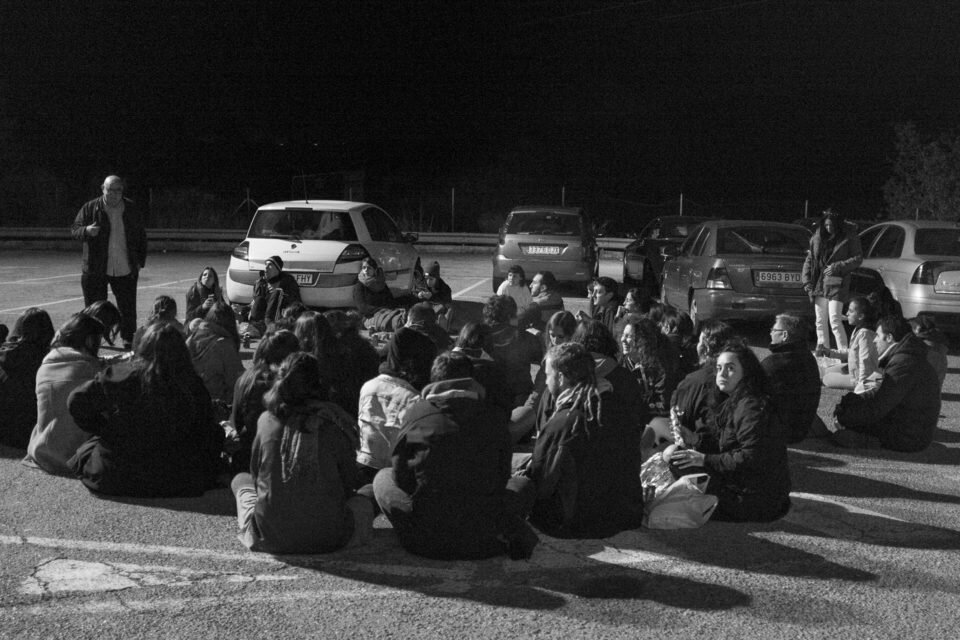
Expert seers seem happy to have an audience. They have told each other the same stories time and time again about when they came across a UFO and now have some new flesh there to remember that moment in which they embraced causal illusion. There’s something moving about the moment in which A falls in love with B. That inner certainty, needing no confirmation, that shows science the middle finger; that validates your opinions with a romantic stubbornness; that makes you feel as though you keep a secret you have only revealed according to your skills… All this must be comforting.
In very few moments of my life, other people’s faith, based in any belief whatsoever, has made me really jealous, it seems like an analgesic for pain I have no recipe for. And in those moments, my scepticism, something I’m usually proud of, seems like a toothache I can’t dodge.
And this is one of those brief moments. All of a sudden, I wish the sky would get filled with white spots, like the polka-dots on a flamenco dancer dress, and, since we’re at it, I wish for one of them to land and from it to emerge my favourite alien ever, Gurb, the character invented by Eduardo Mendoza to recreate pre-Olympic Barcelona in his novel Sin noticias de Gurb. I want to feel the joy of Carcosa, like Matthew McConaughey at the end of True Detective‘s first season –sorry for the spoiler–. But, as it was to be expected, nothing happens. A beautiful fairy tale night under the stars. When I get back home, my scepticism forgives my unfaithfulness and I embrace it with renewed passion. I promise it that my affair is over and that I won’t ever see any more alien or ghost programmes unless it’s strictly necessary for taking a nap.



